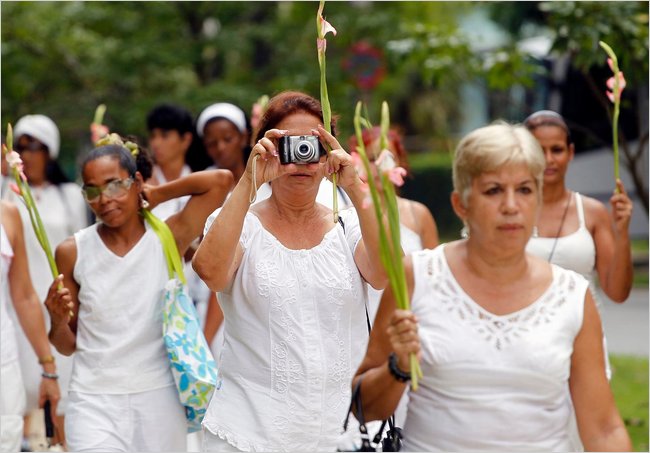 Desmond Boylan/Reuters
Desmond Boylan/Reuters
Negotiations at the end of July between Cuban President Raul Castro, the Roman Catholic Archbishop of Havana Jaime Ortega, and Spain’s foreign minister, Miguel Angel Moratinos, yielded unusual results: Havana decided to release 52 of the individuals currently identified internationally as political prisoners—a full third of those currently held under that status. The website of the Archdiocese of Havana is continually updating its main page with news of the prisoners that have been released, their names, and their destination: Spain. As of today, 20 of the 52 prisoners had accepted the offer of release and exile in Spain with their families.
US official reactions have been hesitant. William LeoGrande, a Cuba expert at American University in Washington, commented that the move could somewhat be seen as Cuba “testing the sincerity of the US, doing something dramatic that the US demanded, to see if the US responds positively.” Secretary Hillary Clinton gave a seemingly grudging acknowledgement: “We think that’s a positive sign,” she noted. “It’s something that is overdue but nevertheless very welcome.”
The number of internationally defined “political prisoners” in Cuba has thus dropped to its lowest point since 1959, according to the (non-government sanctioned) Cuban Commission on Human Rights. And Guillermo Farinas, the Cuban dissident who has been on hunger strike since February protesting the situation of Cuban prisoners, has now reportedly ended his strike with news of the releases.
So why the release? Why listen to the Church and to Spain?
Certainly there has been considerable international pressure to release prisoners, but Havana already made it clear that it would not bend to such interferences. The real issue might be economic need. In September the EU will vote on revising the “common position,” and European countries committed to lift common position if the situation of the prisoners could be “breached.” That is a strong impetus for Cuba to want to show some instance of changes made.
Al Jazeera covers the key points here: